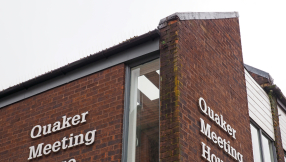
New research has suggested that non-Christian university students are reading the Bible more than expected and that Christian students may well be reading it less than expected.
The survey of just over 2,000 students across 186 different universities was conducted by the Savanta data centre on behalf of the Fusion student movement. It found that 12% of non-Christian students read the Bible at least once a week, although this includes extremely minimal interaction, such as seeing a Bible verse briefly on social media.
While one might not expect non-Christians to be regular readers of the Bible, self-identified Christians would presumably read the Bible regularly as a matter of course. However, the research suggested that 71% of Christian students don’t even read the Bible once a week.
Responses to the survey suggest that around half of students in British universities believe the Bible is relevant to modern life, although this number drops among non-Christians (32%) and those with no religion (27%).
The figures were similar for those who view the Bible as credible, with 44% of students overall agreeing it is a reliable text, dropping to 19% among students with no religion.
Adam Mitchell-Baker, a spokesman for Fusion, told Premier, “Students have differing opinions on the reliability [of the Bible], but they still want to find out more.
“They might see that it's in some way offensive to them or kind of misogynistic or homophobic, but they're still interested in reading it. They still want to understand, ‘What does this say about today's world?’ They’re wondering how they can understand it amongst all the, all the different kind of competing noises in the world today.”
Mitchell-Baker added that the character of Jesus and his enduring teachings provide students with far better role models than characters like Andrew Tate or Donald Trump.
Fusion, which aims to place a Bible in the hand of every student in Britain, said that it was “massively surprised” by the results, adding that “the potential opportunity for spiritual transformation offered by greater engagement with the Bible is huge”.









